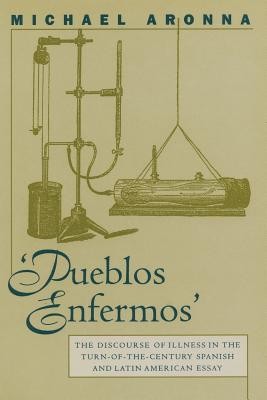
- We will send in 10–14 business days.
- Author: Michael Aronna
- Publisher: University of North Carolina at Chapel Hill Department of Romance Studies
- ISBN-10: 0807892661
- ISBN-13: 9780807892664
- Format: 15.1 x 23.1 x 1.6 cm, minkšti viršeliai
- Language: English
- SAVE -10% with code: EXTRA
Reviews
Description
This book investigates three examples of the turn-of-the-century essay in Spain and Latin America: Angel Ganivet's Idearium espanol (1897), Jose Enrique Rodo's Ariel (1900), and Alcides Arguedas's Pueblo enfermo (1909). Michael Aronna traces the reactions of these historically and rhetorically related colonial and postcolonial thinkers to the new economic, cultural, social, and political challenges of the late nineteenth and early twentieth centuries. He shows how concepts of sexual degeneration, racial inferiority, immaturity, and gender prominent in contemporary philosophy and science were central to these writers' shared understanding of the nation as an organism vulnerable to "social pathogens."
EXTRA 10 % discount with code: EXTRA
The promotion ends in 22d.20:13:12
The discount code is valid when purchasing from 10 €. Discounts do not stack.
- Author: Michael Aronna
- Publisher: University of North Carolina at Chapel Hill Department of Romance Studies
- ISBN-10: 0807892661
- ISBN-13: 9780807892664
- Format: 15.1 x 23.1 x 1.6 cm, minkšti viršeliai
- Language: English English
This book investigates three examples of the turn-of-the-century essay in Spain and Latin America: Angel Ganivet's Idearium espanol (1897), Jose Enrique Rodo's Ariel (1900), and Alcides Arguedas's Pueblo enfermo (1909). Michael Aronna traces the reactions of these historically and rhetorically related colonial and postcolonial thinkers to the new economic, cultural, social, and political challenges of the late nineteenth and early twentieth centuries. He shows how concepts of sexual degeneration, racial inferiority, immaturity, and gender prominent in contemporary philosophy and science were central to these writers' shared understanding of the nation as an organism vulnerable to "social pathogens."


Reviews